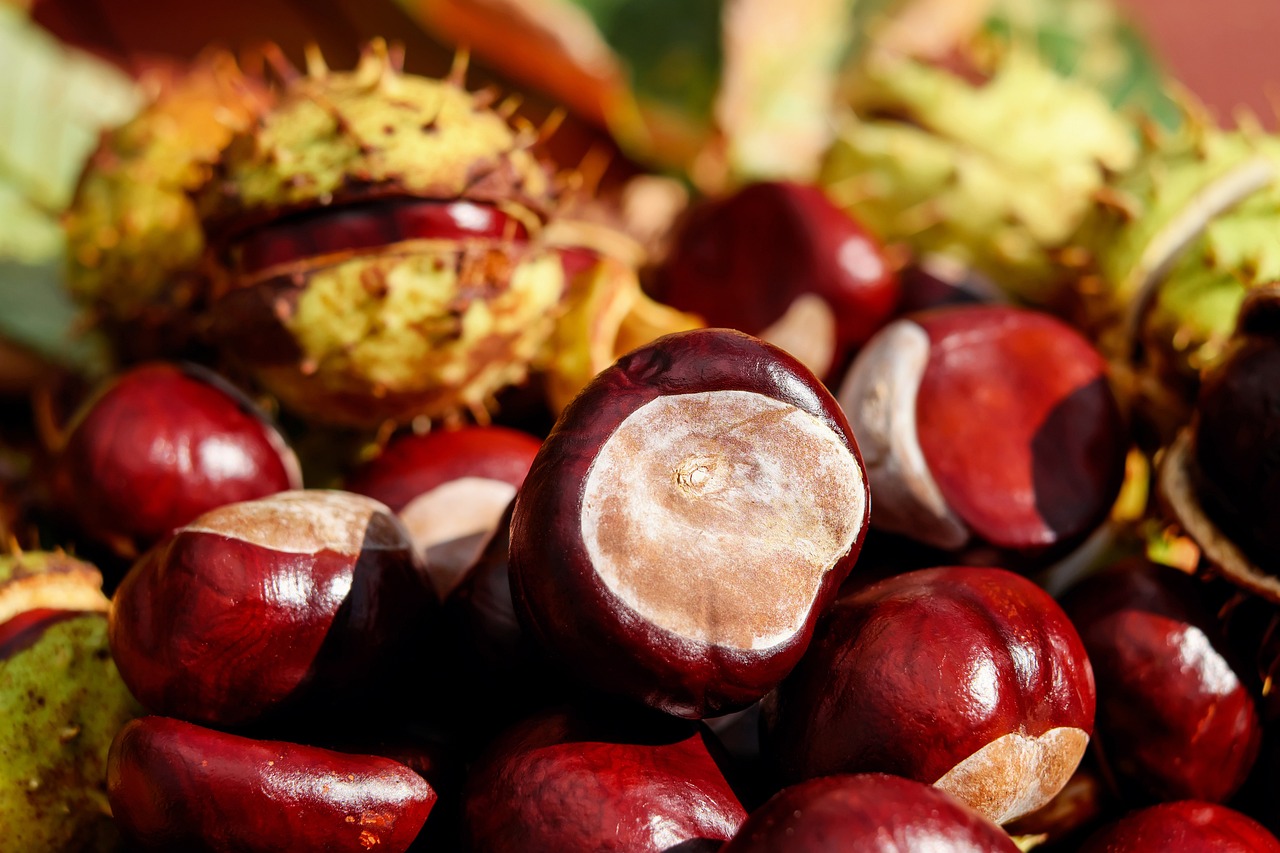Chestnuts are a traditional food in many cultures, appreciated not only for their delicious taste but also for their numerous health benefits. These edible nuts, which grow on the chestnut tree, are mainly available in the fall and can be enjoyed boiled, roasted, or incorporated into various dishes.
In this article, we will explore the health benefits of chestnuts and offer some simple and delicious chestnut recipes to help you integrate them into your diet.
Health benefits of chestnuts
Excellent source of energy
Chestnuts are rich in complex carbohydrates, making them an excellent source of energy. They provide a balanced caloric intake and support sustained energy throughout the day without causing spikes in blood sugar levels, unlike other simple carbohydrates.
Benefits:
- Steady energy supply: The complex carbohydrates in chestnuts are digested slowly, providing long-lasting energy.
- Great for athletes and active individuals: Chestnuts are an excellent choice to support physical performance.
Heart health
Chestnuts are a source of unsaturated fatty acids, which are beneficial for cardiovascular health. These healthy fats help maintain a balanced lipid profile, reducing the risk of heart disease. Additionally, chestnuts are rich in potassium, an essential mineral for regulating blood pressure.
Benefits:
- Reduces the risk of cardiovascular diseases: By maintaining healthy cholesterol and blood pressure levels.
- Supports heart function: Potassium in chestnuts helps maintain electrolyte balance and proper heart function.
Improves digestion
Chestnuts are high in fiber, which supports digestive health. The fiber helps maintain regular bowel movements and can prevent constipation. Furthermore, the fiber in chestnuts contributes to a balanced gut microbiome, essential for the efficient digestion of food.
Benefits:
- Prevents constipation: Fiber helps with better digestion and regular bowel movements.
- Supports a healthy gut microbiome: The fiber in chestnuts helps maintain a balanced digestive system.
Source of vitamins and minerals
Chestnuts are rich in B vitamins (especially vitamin B6), which are essential for the proper functioning of the nervous system and energy metabolism. They also contain important minerals such as copper, iron, phosphorus, and zinc, which are crucial for bone health, blood, and the immune system.
Benefits:
- Improves metabolism: The B vitamins in chestnuts help metabolize nutrients correctly.
- Supports bone and blood health: The minerals in chestnuts are essential for bone structure and red blood cell production.
Benefits for skin and hair
Due to their antioxidant content, vitamin C, and minerals, chestnuts can help maintain youthful-looking skin and promote healthy hair. Antioxidants protect the skin from damage caused by free radicals, preventing premature aging.
Benefits:
- Improves skin health: Protects the skin from premature aging and supports cellular regeneration.
- Strengthens hair: The nutrients in chestnuts help keep hair healthy and shiny.
Delicious chestnut recipes
Chestnut cream soup
A delicious and comforting recipe perfect for the colder months, this chestnut cream soup is easy to make and ideal for a healthy meal.
Roasted chestnuts
One of the simplest and most delicious ways to enjoy chestnuts is by roasting them. They become soft and sweet, making them a great healthy snack or side dish.
Oatmeal with chestnuts and fruits
An interesting twist on the classic breakfast, this oatmeal with chestnuts adds extra flavor and nutrients. It’s a healthy and filling meal to start your day.

Chestnuts are a valuable food with remarkable nutritional benefits that contribute to heart health, digestive health, and the health of your skin and hair. They are an excellent source of energy, vitamins, and essential minerals, and regularly consuming them can add both flavor and nutrients to your diet.
Furthermore, with the simple and delicious recipes we’ve shared, you can easily incorporate chestnuts into your daily meals, making them a part of your favorite dishes.
4

